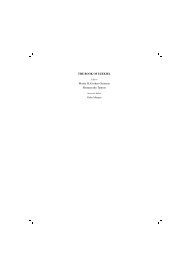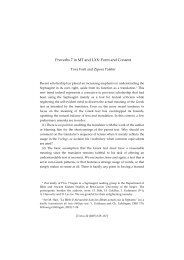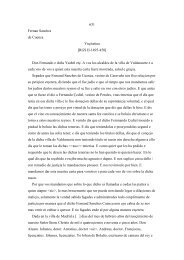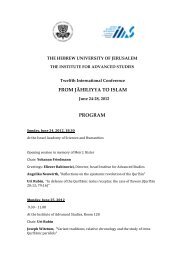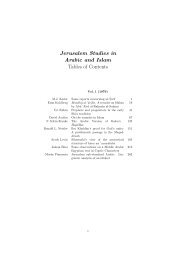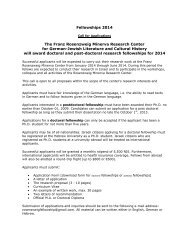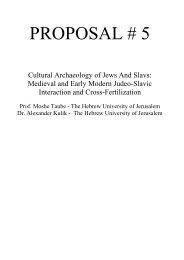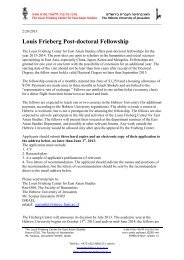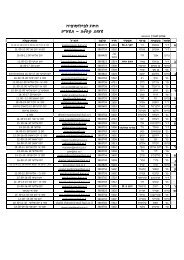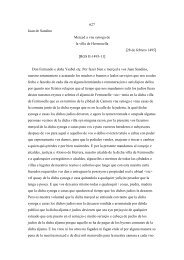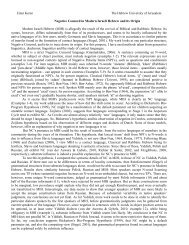Baber Johansen
Baber Johansen
Baber Johansen
Create successful ePaper yourself
Turn your PDF publications into a flip-book with our unique Google optimized e-Paper software.
8<br />
Secondly, the impersonal character of the law. This suggestion may<br />
seem surprising. Nurit Tsafrir has convincingly demonstrated that from<br />
the second half of the eighth century on, the Íanafī law school was<br />
defined as a personal law school, a school that ascribes its doctrine to<br />
Abū Íanīfa (d. 767). 34 Other schools followed this example. From the<br />
end of the ninth century on, the Sunnī law schools are known as ÍanafÐ,<br />
MÁlikÐ, ShÁfiÝÐ, or ÍanbalÐ schools in reference to the major scholars who<br />
are treated as if they were the authors of the school doctrines. But that<br />
does not mean that the doctrine of a school of law is understood as being<br />
restricted to one scholar’s teaching. The discussions and conflicts among<br />
the scholars of each law school as well as between the scholars of<br />
different schools of law are well known and their dissent is accepted. The<br />
personal authority of the eponym of the school is invoked to stress the<br />
historical continuity of the school’s doctrine from its beginnings to its<br />
present state. In other words, the authority of the law schools transcends<br />
that of the scholars who are referred to as school founders. Its authority is<br />
normative authority, based on the doctrine of the school, not on one<br />
scholar. In this sense, and in this sense only, does Wael Hallaq’s attack<br />
on the notion of the personal school makes sense. 35<br />
Not persons, but norms fulfill the function of religious guidance<br />
according to the fiqh. The interpretation of these norms is incumbent<br />
upon the individuals who apply them. Only if conflicting interpretations<br />
of these norms require a decision by a qualified scholar or official, are<br />
the norms subject to a judge’s verdict or a scholar’s opinion. The<br />
appropriation and internalization of legal norms by the members of a<br />
community or a society allows them to base their behavior on the<br />
expectation that everybody will, under defined conditions, choose to act<br />
in the specific way that the norm prescribes for such a situation. The<br />
norm thus reduces the complexity and contingency of a situation through<br />
rendering the act of each participant in it calculable. 36 In other words, the<br />
law’s impersonal rule enables the members of a society to orient their<br />
acts according to common normative standards. The rules of fiqh denote<br />
the common standard of expected normative behavior. The validity of<br />
such a standard can extend over the life of many generations and is,



